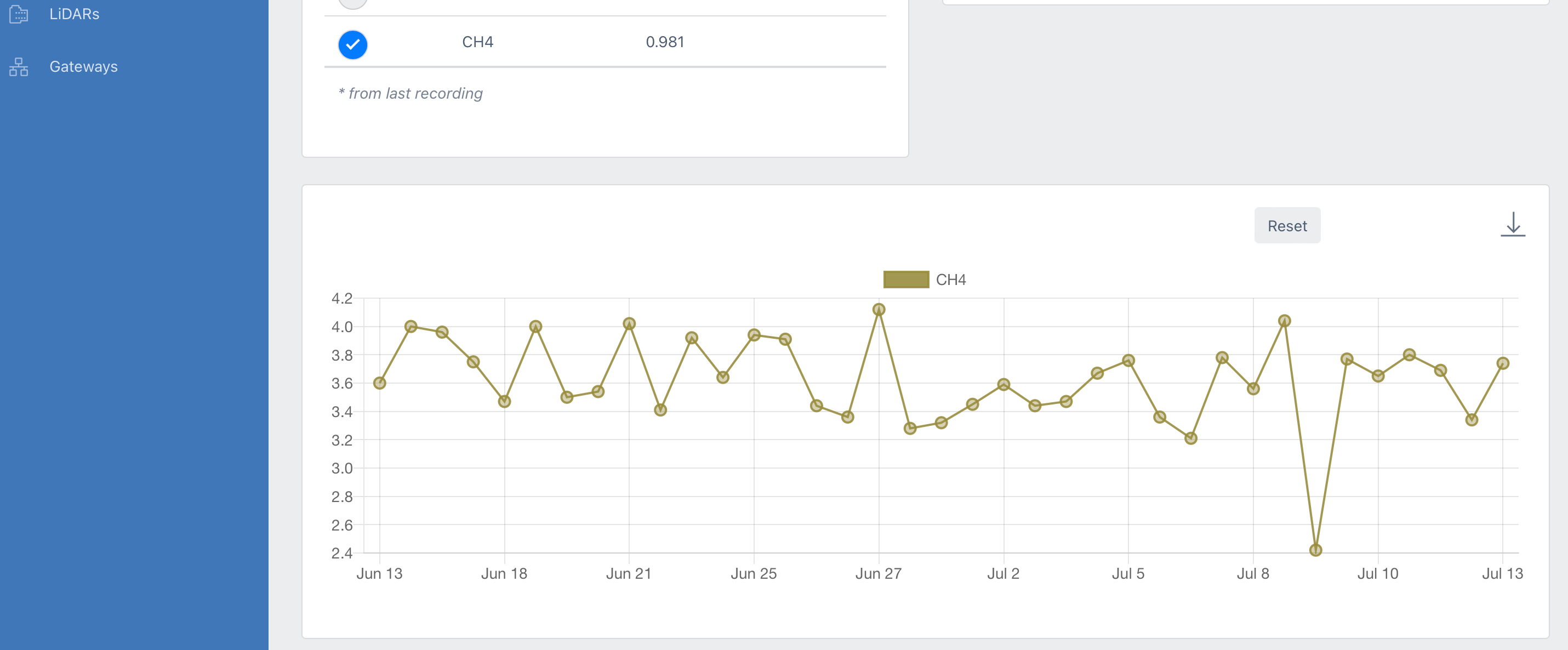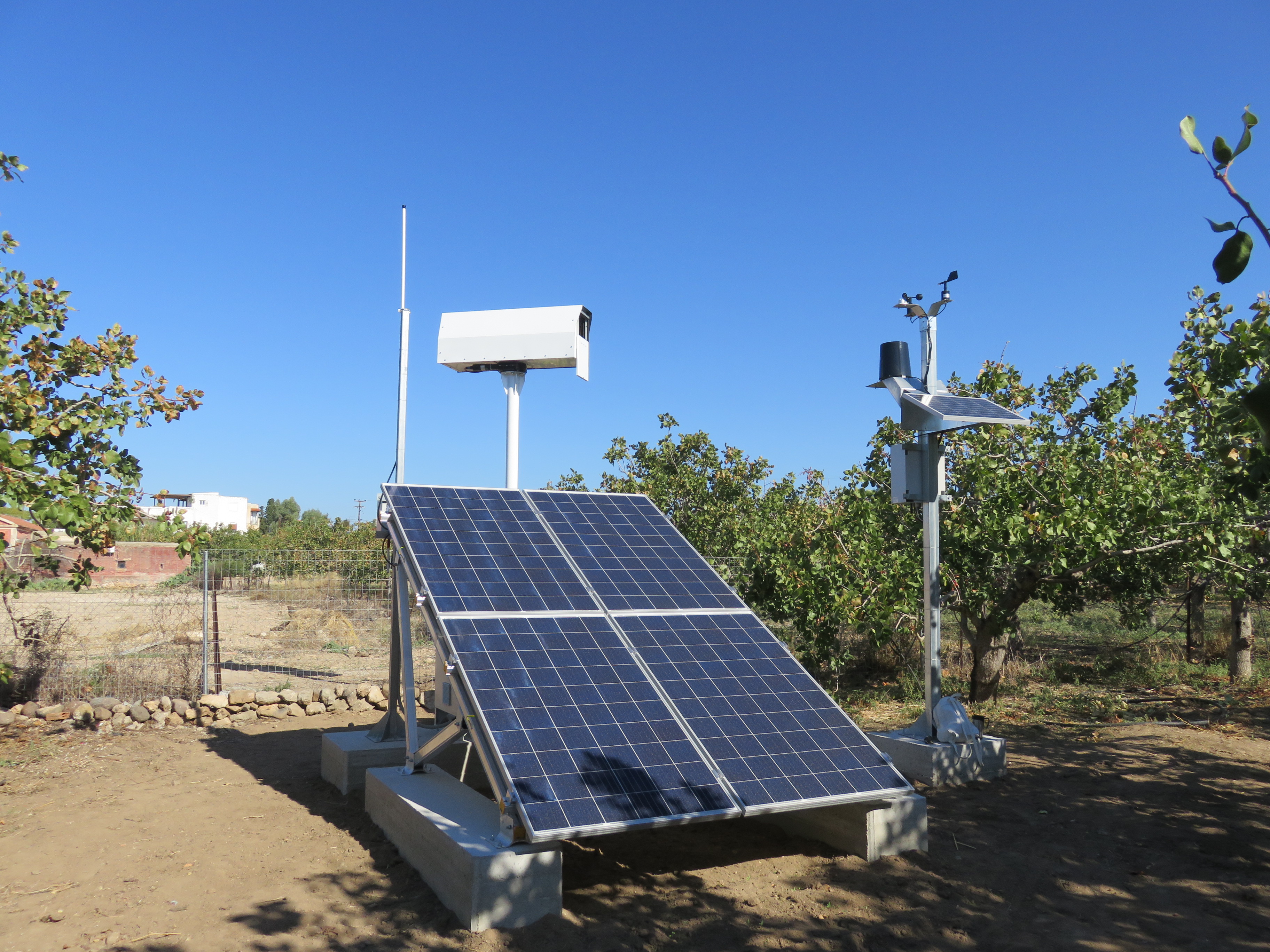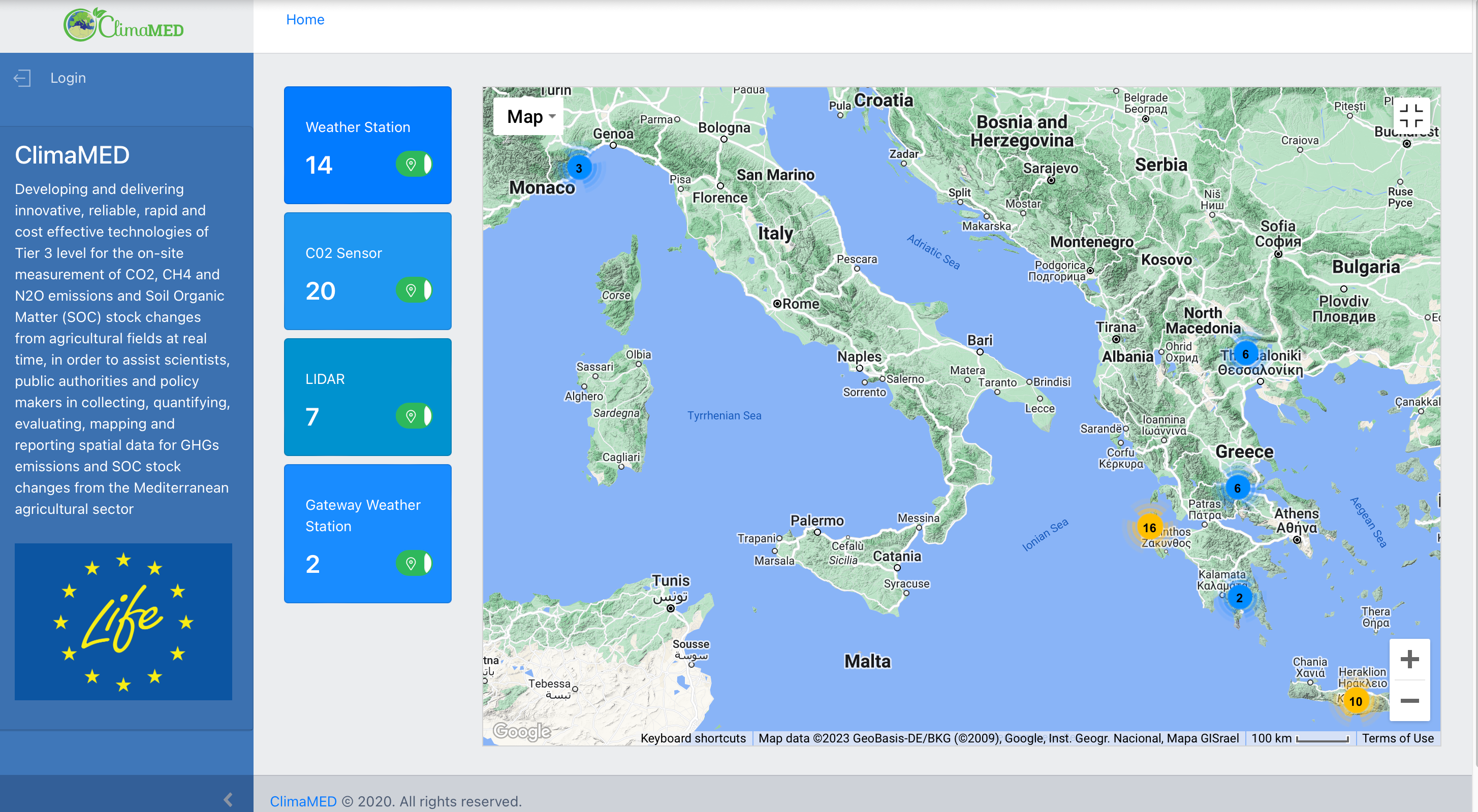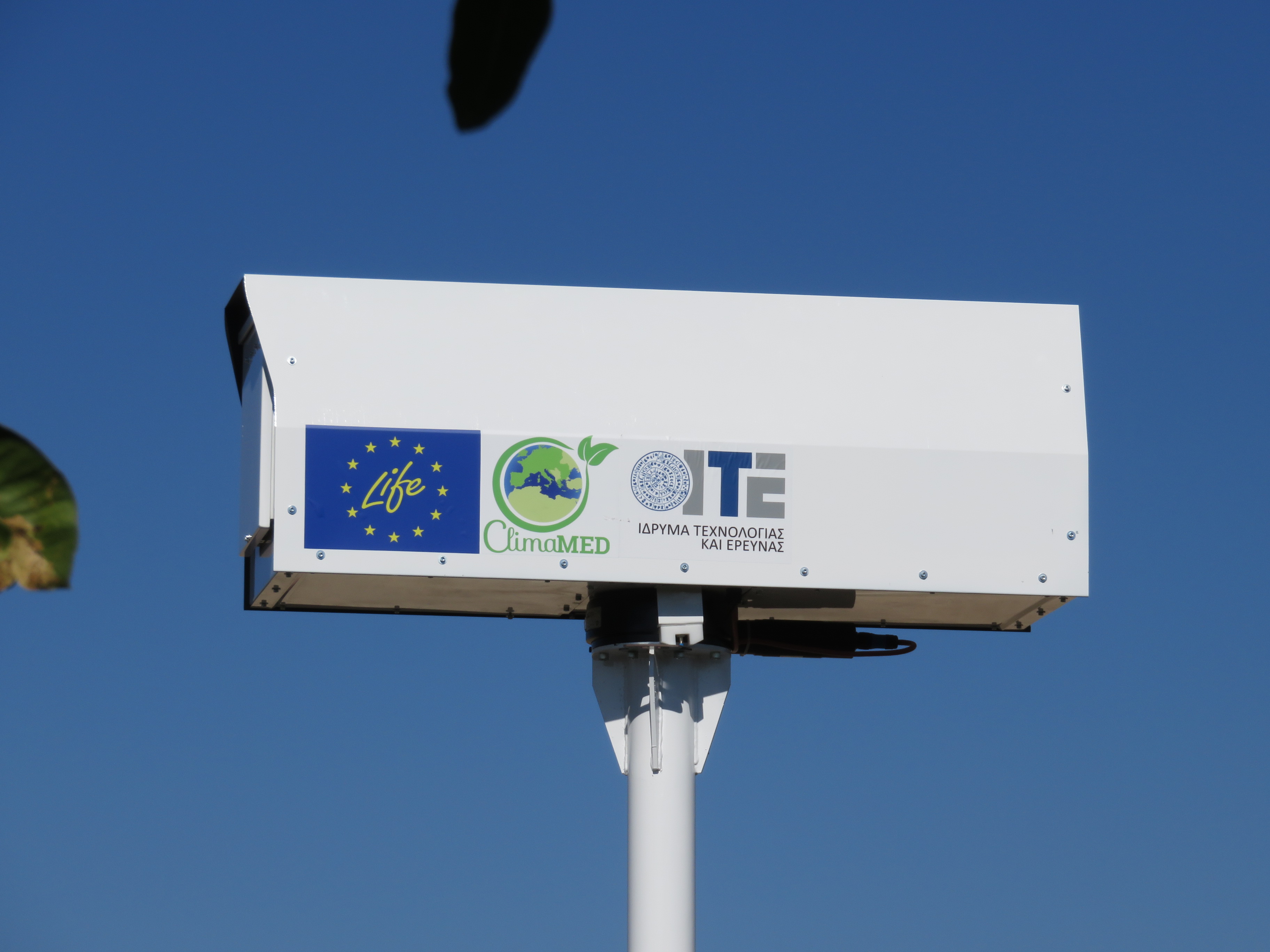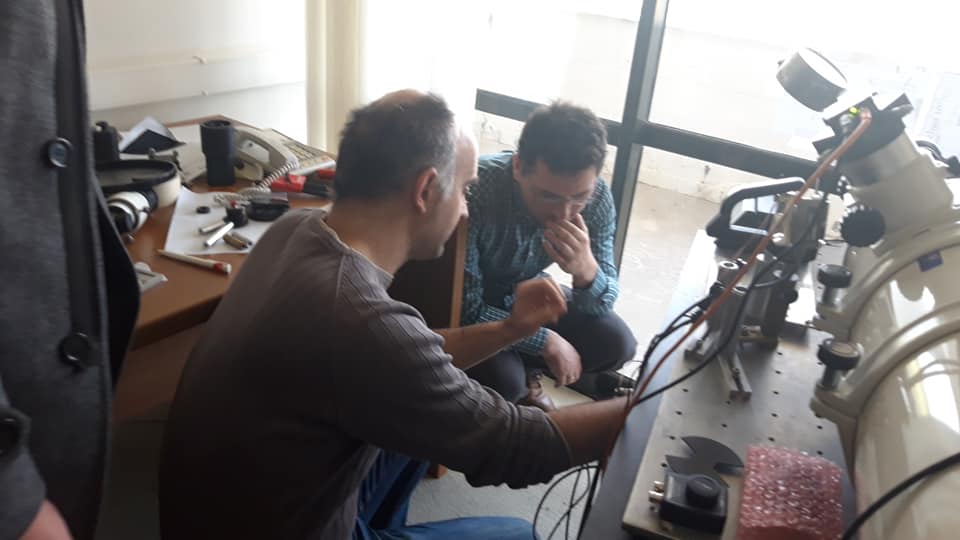July-September 2023 - LIFE ClimaMED
Α) Identity of the project
| Title/ N° |
Innovative technologies for climate change mitigation by Mediterranean agricultural sector
LIFE ClimaMED - LIFE17 CCM/GR/000087
|
| Duration |
2018-2024 |
| Budget | 2,859,783 Euro |
|
Beneficiaries |
Coordinator: Beneficiaries: |
| Location of activities |
Greece, Italy, Spain, Cyprus |
| Website | |
| Contact |
Dr Maria Doula - Project Coordinator |
Description/Aim
The LIFE ClimaMED project is a particularly ambitious project mainly in terms of the methodology it will develop but also in the goals it has set for its adoption. LIFE ClimaMED will demonstrate real-time measurement of Greenhouse Gases (GHG) from agriculture and for this purpose the project designed and construct prototype LIDAR devices to measure CO2, CH4 and N2O from agricultural land. As part of the optimization of operation, parameterization and validation of measurements, ten LIDAR devices were installed to monitor and record GHG emissions of five crops: olive trees, vines, vegetables, wheat and pistachio trees. Moreover, a device was installed in a cow farm. The goal of these actions is the collection and transfer of the records through a telemetry system to a web GIS-based platform, which will function as a Center of Management and Monitoring of GHG Emissions from agriculture and will be under the control and supervision of the Greek Ministry of Rural Development and Food. The Greek Ministry, as a project partner, has undertaken the development of the appropriate legislative framework to facilitate the supply of devices by producers, their participation in the GHG recording scheme from their properties and their reward through a special subsidy when they achieve emission reduction targets because of their practices. These carbon footprint reduction practices are also a goal of the project, as the partners will evaluate and propose low footprint practices to producers and to the Ministry, the implementation of which together with the validation of low emissions through the project platform could lead to certification of their products as "low carbon footprint products". For this purpose, the project will propose a certification system which will be based on the measurements of the LIDAR devices. The know-how and the implementation method at the national level as developed by the Greek partners will be transferred through targeted actions to the project partners in Italy, Spain and Cyprus.
Β) Best Practices
The main target group of the project is the national authorities as the adoption of a central system to monitor GHG emissions from agriculture, the purchase and installation of the devices, the implementation of a telemetry system and finally the collection of information and its management on the project platform will support them on the one hand in more accurate recording and reporting of emissions at national level and on the other hand in decision-making and development of GHG reduction policies. Dissemination to the national authorities of other countries will start from the countries of the project beneficiaries, i.e. Italy, Spain and Cyprus, which the Greek Ministry as well as all the project partners will help to develop their own legislative framework by proposing and explaining them the framework that will be developed for Greece.
Farmers cooperatives and groups of producers in all four participating countries are also an important target group, whose information has already started, while a strong interest is registered to be informed both about the way the devices work, but mainly about the use of the platform for collecting and managing GHG records. In this case the tools of the project could be used to serve the objectives of the cooperatives/groups of producers and specifically to prove the carbon footprint of their products. In addition to the direct information actions of the target groups, the project will implement a series of information actions and workshops throughout Greece but also in Italy, Spain and Cyprus.
C) Results
The project to date has achieved a large part of its expected results, mainly the design, construction, and validation of proper operation of the LIDAR devices, but also the installation of the devices in pilot fields throughout Greece and recently in Italy. The web app (i.e. the platform) for the collection and processing of CO2, CH4 and N2O recordings from the places where the LIDAR devices were installed was also implemented. The platform is operational, while through this pilot use it is continuously improved until it is delivered at the end of the project to the Greek Ministry. LIFE ClimaMED has also finalized its proposal for a certification scheme for agricultural products as 'low carbon footprint', while practices to help producers achieve low emissions are being developed by the project teams in the form of guidelines.
LIFE ClimaMED is a project focused on agriculture, but its results can also be applied to other productive sectors, with appropriate adaptations. As an example of application in other sectors, a LIDAR device was installed on a cow farm, with very encouraging results. The next goal is the installation in a tourist port in Italy, a particularly ambitious goal, which will be attempted to be achieved within the next year.
LIFE ClimaMED is not only about agriculture, its achievements can be used to address challenges from other productive sectors and for this reason proposals and new ideas are welcome from the project beneficiaries.



